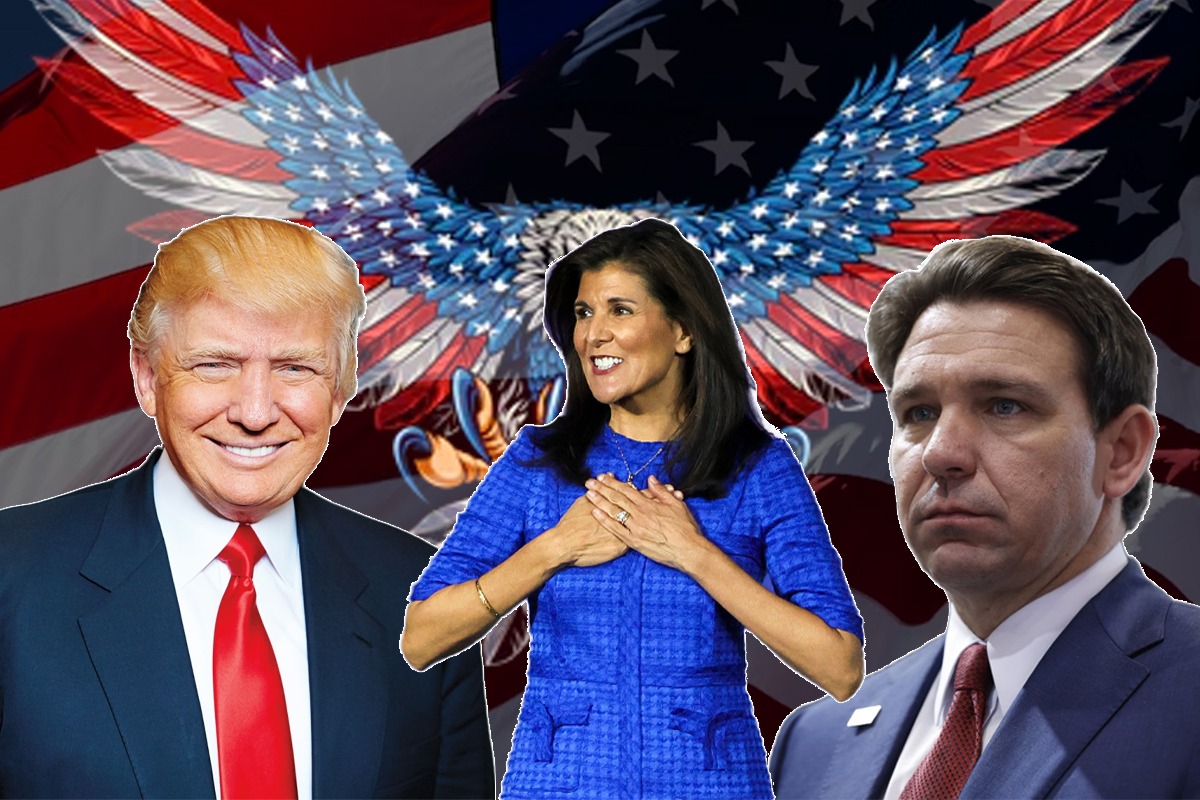As the Iowa caucus approaches for the GOP, the political stage is set for a potentially world-altering decision. At the forefront is Former President Donald Trump, leading in all polls and poised to secure the party’s nomination. The outcome of this primary isn’t just about the race; it could solidify Trump’s return to a rematch of the 2020 election, sparking concerns both within the US and globally. Trump’s legal troubles, with four criminal court cases and 91 indictments, raise concerns about the unpredictability that characterized his previous term.
The GOP Landscape: A Closer Look at Key Players
The GOP field is diverse, with Former President Donald Trump, Nikki Haley, and Governor Ron DeSantis leading the pack. Trump’s dominance in the polls creates an uphill battle for his competitors. However, Nikki Haley and Ron DeSantis are standing out as formidable contenders with distinct profiles. Others in the race, former New Jersey Governor Chris Christie and entrepreneur Vivek Ramaswamy are registering in single digits and looking at only extending their campaigns to New Hampshire.
Global Implications: Balancing Stability and Unpredictability
The world, wary of Trump’s policies, fears a repeat scenario. His views on Russia and Putin, particularly his stance on NATO and aid to Ukraine, indicate potential shifts in global dynamics. Trump’s potential return to the presidency could have profound implications on the global stage. From Russia to China, the Middle East to allies in Europe, the world watches with bated breath.
- Russia: Shifting Dynamics Trump’s friendly stance towards Russia during his previous term could signal a shift in global dynamics. His expressed willingness to withdraw from NATO and reluctance to support Ukraine financially might embolden Russian President Vladimir Putin, altering the delicate balance in Eastern Europe.
- China: Strategic Competition A second Trump term could reignite tensions between the U.S. and China. Even Joe Biden has found it tough to deal with China. Trump’s assertive approach on topics ranging from trade and technology transfers to Indo-Pacific and Taiwan might escalate into a crisis impacting global economic stability. Additionally, his confrontational stance on China’s rise as a global power could exacerbate strategic competition leading to a renewed full-fledged Cold War.
- Middle East: Policy Shifts and Regional Alliances Trump’s policies in the Middle East were marked by a recalibration of alliances, particularly with Israel and certain Gulf nations. A return to the Trump era could see further shifts in regional dynamics, affecting ongoing geopolitical conflicts and negotiations especially when it comes to the ongoing Israel-Gaza war. US Policy in the Middle East will require a nuanced approach to the future of Gaza and Palestine.
- Europe: Strained Alliances Trump’s “America First” approach strained traditional alliances in Europe. A second term might exacerbate tensions with NATO allies and impact collective efforts to address the Russia-Ukraine War, global supply change and other global challenges, including climate change and public health.
A Trump nomination and ultimate win could lead to inconsistent and unpopular policy decisions, reshaping global relations and sparking uncertainty. Iowans, in choosing a candidate, inadvertently cast a vote that could shape not only the trajectory of the GOP nomination but also one that could eventually influence the future course of world affairs.
The primary on January 15 in Iowa takes on new significance as Iowans have a chance to weigh not only Trump’s popularity but also the potential for a fresh approach with candidates like Haley and DeSantis.
This time the Iowa caucus for the GOP transcends regional boundaries. It is a pivotal moment where voters are tasked with not just choosing a nominee but influencing the trajectory of global affairs. The decisions made in Iowa will resonate far beyond state lines, shaping the narrative of the GOP and, consequently, the future course of the world. As the world watches, the importance of this caucus cannot be overstated, and the responsibility lies with Iowans to consider the broader implications of their choice.
Rohit Sharma is an award-winning freelance journalist based in Washington D.C. covering US foreign policy and US-India relationships for various media outlets. His work & commentary has appeared in 6 different languages.
He can be contacted at @DcWalaDesi
Email- DCwalaDesi@gmail.com

